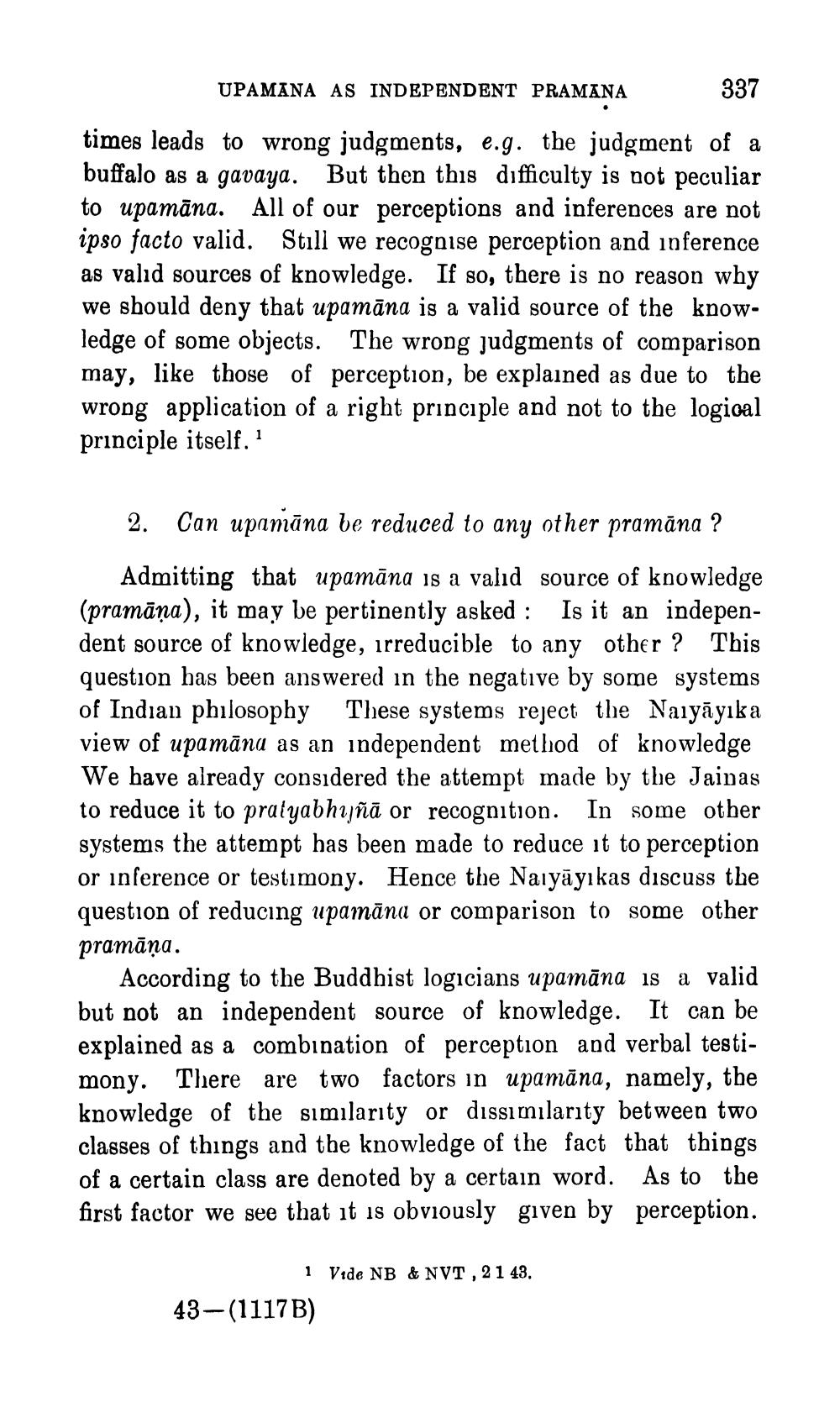________________
UPAMANA AS INDEPENDENT PRAMANA 337 times leads to wrong judgments, e.g. the judgment of a buffalo as a gavaya. But then this difficulty is not peculiar to upamāna. All of our perceptions and inferences are not ipso facto valid. Still we recognise perception and inference as valid sources of knowledge. If so, there is no reason why we should deny that upamāna is a valid source of the knowledge of some objects. The wrong judgments of comparison may, like those of perception, be explained as due to the wrong application of a right principle and not to the logioal principle itself.
2. Can upamāna be reduced to any other pramāna ?
Admitting that upamāna is a valid source of knowledge (pramāņa), it may be pertinently asked : Is it an independent source of knowledge, irreducible to any other ? This question has been answered in the negative by some systems of Indian philosophy These systems reject the Naiyāyika view of upamāna as an independent method of knowledge We have already considered the attempt made by the Jainas to reduce it to pratyabhijñā or recognition. In some other systems the attempt has been made to reduce it to perception or inference or testimony. Hence the Naiyāyikas discuss the question of reducing upamāna or comparison to some other pramāņa.
According to the Buddhist logicians upamāna is a valid but not an independent source of knowledge. It can be explained as a combination of perception and verbal testimony. There are two factors in upamāna, namely, the knowledge of the similarity or dissimilarity between two classes of things and the knowledge of the fact that things of a certain class are denoted by a certain word. As to the first factor we see that it is obviously given by perception.
1 Vide NB & NVT, 2 1 43. 43-(1117B)




